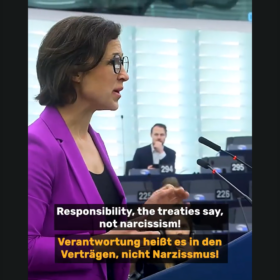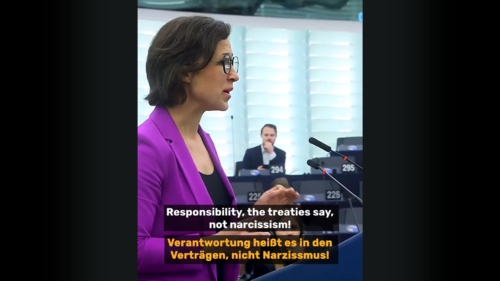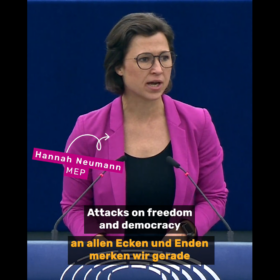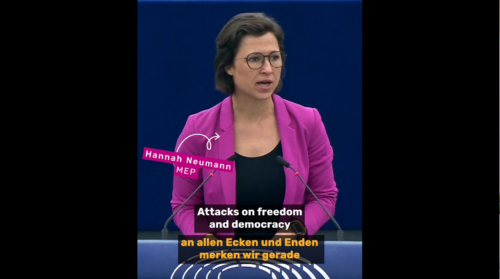How should the EU’s strategic partnership with the Gulf States develop in future? On this topic, an internal exchange between the Committee on Foreign Affairs, the Delegation for relations with the Arabian Peninsula and the European External Action Service took place yesterday in the European Parliament. Speakers at the public hearing, which followed thereafter, were Cinzia Bianco (European Council on Foreign Relations), Adnan Tabatabai (Center for Applied Research in Partnership with the Orient) and Christian Koch (Gulf Research Centre), who also answered questions by MEPs.
As Chair of the Delegation for relations with the Arabian Peninsula, I focused on the key issues in EU-Gulf relations during the exchange and the hearing:
- Cooperation in the energy sector, in particular regarding renewables
- Improving the human rights situation
- The EU’s role in regional security, including in relation to an end to the war in Yemen
- Impact of the Ukraine war on EU-Gulf relations
Common interests, for example in the field of renewables
The experts provided comprehensive analyses and recommendations. The following aspects were highlighted in particular:
- The diminishing role of the US in the region opens up more opportunities for the EU to exert influence. However, the West is no longer necessarily a priority for the Gulf states: in future, China will also deepen its relations with the region.
- Regional approaches are becoming increasingly important for conflict resolution. Iraq, for example, played a central role in initiating and continuing the dialogue between Iran and Saudi Arabia.
- There is a common interest in more cooperation in the field of renewables: The Gulf states also need to prepare for a time without fossil fuels and the EU is a pioneer in this field.
- The governments of the Gulf states hardly react to public criticism on the human rights situation, but are willing to engage in dialogue in a discreet setting.
- As a measure against the nuclear threat in the region, the creation of a nuclear-free zone in the Gulf or, in the long term, in the entire Near and Middle East is recommended.
In any case, it was an enriching exchange with clear recommendations for action for the EU, which showed that both sides benefit from an intensification of EU-Gulf cooperation – especially in view of the current crisis situation.
At the beginning of May, the European External Action Service is expected to publish the strategy paper “Joint Communication on the Strategic Partnership with the Gulf States”.












